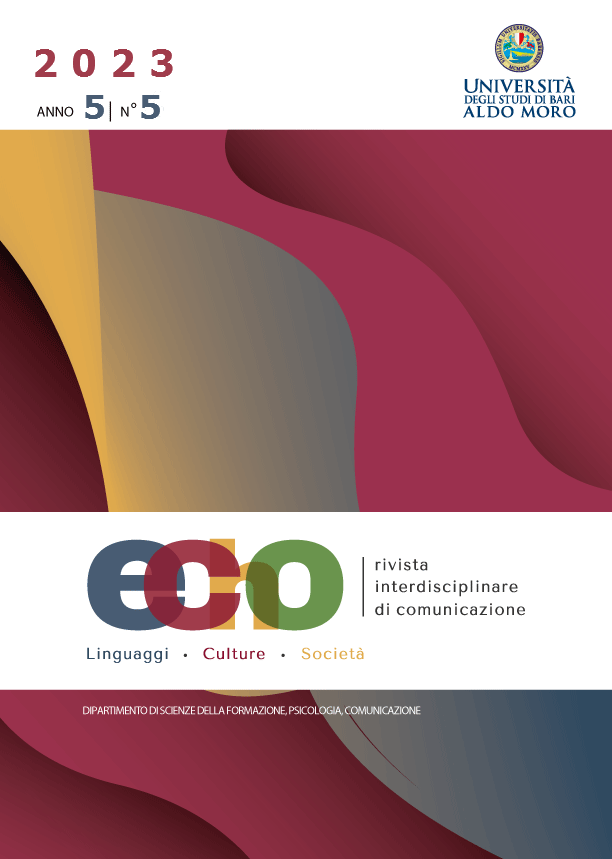Lo spazio digitale: una prospettiva eterotopica della memoria nell’era di Byung-Chul Han
DOI:
https://doi.org/10.15162/2704-8659/1887Parole chiave:
Memory, heterotopia, heteochronia, dataism, cyberspaceAbstract
The purpose of this paper is to provide elements for theoretical reflection about the space of the digital as a site of memory starting from the Foucauldian concept of heterotopia and in relation to Han's theses about cyberspace. The concept of heterotopia, deeply anchored in the structuralist approach, has exerted an undoubted influence in the social sciences and in the field of so-called memory studies. Heterotopias, which take the form of concretely realized utopias, subvert the traditional process of hierarchization of social space insofar as they are able to juxtapose – within a single real place – other places and spaces which are typically incompatible with each other. This process also takes place in relation to the temporal datum and through a breach of the traditional conception of time: think, by way of example, of cemeteries as a heterotopic – and, indeed, heterochronic – place where the opposite poles of ‘death’ and ‘eternity’ are reunited. Nowadays, the advent of information technologies and the pervasive spread of the digital in our lives have had a deep impact on what were traditionally considered the places of memory. For this reason, it appears necessary to question the space of memory within and in relation to the digital environment. Equally evident appears to be the role played by the French philosopher in the development of Han's thought. Starting with a reconstruction of the concept of heterotopia and its potential application in the digital sphere, this essay proposes a reading of cyberspace as a potential heterotopic place capable of fostering the construction of shared collective memories. Moreover, by breaking down the barriers of space and time, the digital becomes a place where humans can learn information, stories and past events in a manner not dissimilar (or even enhanced) to what other heterotopic places allow, acting in favour of that attribute of memory that Kant, in Anthropology from a Pragmatic Point of View, defines as ‘active/productive’, since it is able to make the past voluntarily present.Downloads
Pubblicato
2023-12-22
Fascicolo
Sezione
Focus








